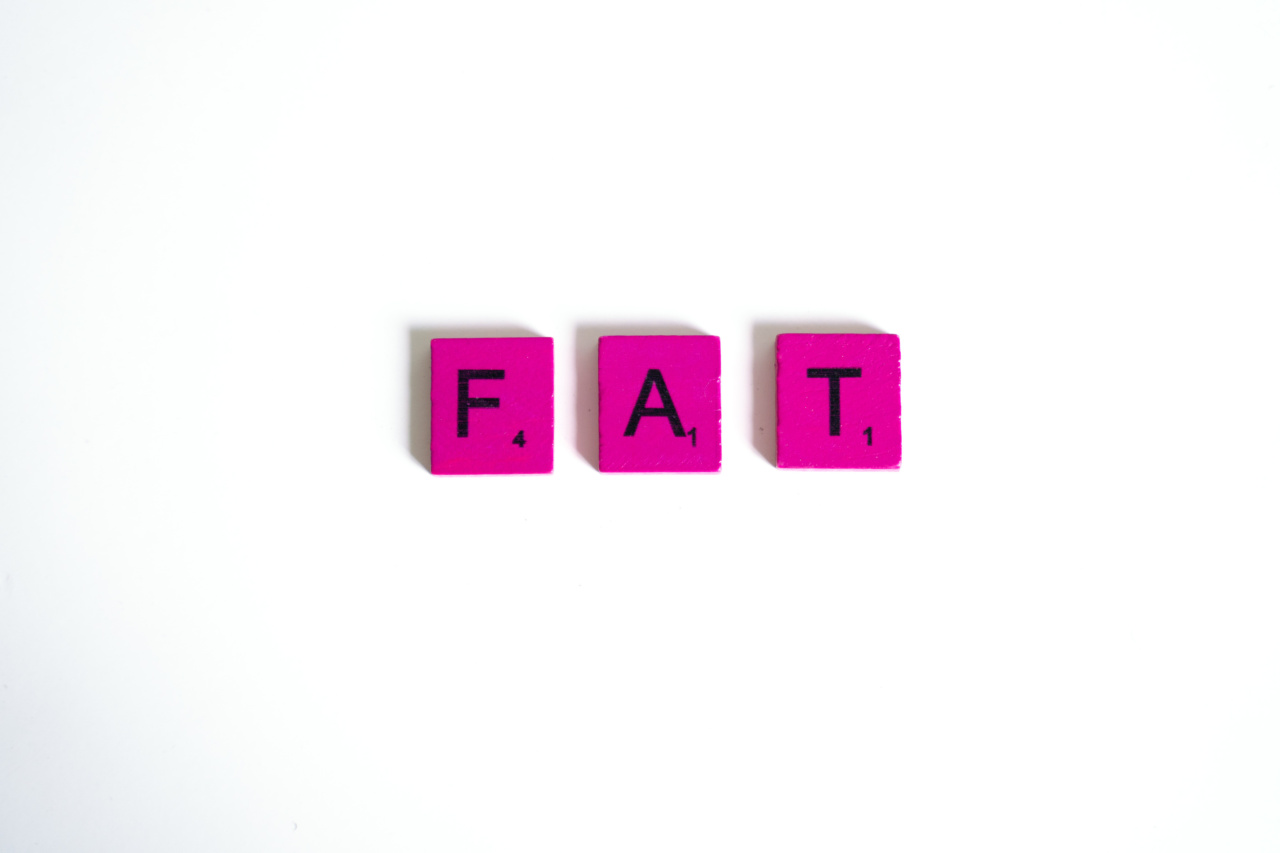Fat has long been a topic of debate and confusion when it comes to its impact on our health. As individuals, we are bombarded with conflicting information about whether we should consume fats or avoid them entirely.
In recent years, however, cardiologists have been carefully studying the effects of fat on our cardiovascular health. In this article, we aim to provide you with the cardiologist’s final word on fat, and clarify any misconceptions or myths surrounding this controversial nutrient.
The Role of Fat in Our Diet
Fat plays a crucial role in our diet and overall health. It is a concentrated source of energy and essential fatty acids that our bodies need for various functions.
It acts as a carrier for fat-soluble vitamins (A, D, E, and K) and aids in their absorption. Moreover, fat contributes to the flavor, texture, and satiety of many foods.
The Types of Fat
Not all fats are created equal, and it is important to understand the different types of fat in order to make informed dietary choices. Let’s explore the three main types:.
1. Saturated Fat
Saturated fat is often associated with negative health effects, particularly cardiovascular diseases. This type of fat is primarily found in animal products, such as fatty cuts of meat, whole milk, butter, and cheese.
While it is true that excessive intake of saturated fat can increase cholesterol levels and the risk of heart disease, recent research suggests that the picture may be more complex than initially thought.
2. Trans Fat
Trans fats are artificial fats created through a process called hydrogenation. These fats are commonly found in processed foods, including fried foods, pastries, and margarine.
Unlike other dietary fats, trans fats raise both LDL (bad) cholesterol levels and lower HDL (good) cholesterol levels, ultimately increasing the risk of heart disease. Thus, it is advisable to limit consumption of trans fats as much as possible.
3. Unsaturated Fat
Unsaturated fats are generally considered heart-healthy fats and should form the majority of our fat intake. They are found in plant-based oils (olive, canola, soybean), nuts, seeds, and fatty fish (salmon, trout, mackerel).
Including unsaturated fats in our diet can help improve blood cholesterol levels, reduce inflammation, and lower the risk of heart disease.
The Impact of Fat on Heart Health
For decades, saturated fat was considered the primary culprit linked to heart disease. However, recent studies have challenged this longstanding belief.
Research published in the American Journal of Clinical Nutrition conducted a meta-analysis of 21 studies and found no significant evidence supporting the idea that saturated fat consumption is associated with an increased risk of cardiovascular disease.
The Importance of Moderation
Regardless of these findings, it is crucial to emphasize that moderation is key when it comes to dietary fat.
While saturated fats may not be as harmful as previously assumed, excessive intake can still contribute to weight gain and potential health problems. It is advisable to replace saturated fats with unsaturated ones in one’s diet whenever possible.
Understanding Cholesterol
Cholesterol is a waxy substance that is often associated with fat. There are two types of cholesterol: LDL (low-density lipoprotein) and HDL (high-density lipoprotein).
While LDL cholesterol is often referred to as “bad” cholesterol as it contributes to plaque buildup in the arteries, HDL cholesterol is regarded as “good” cholesterol as it helps remove LDL from the bloodstream.
The Role of Fats in Cholesterol Levels
The fats we consume can impact our cholesterol levels. Saturated fats tend to raise LDL cholesterol levels, while certain unsaturated fats, such as monounsaturated fats found in olive oil, can help increase HDL cholesterol levels.
Trans fats, on the other hand, have a dual effect of increasing LDL cholesterol and reducing HDL cholesterol.
Dietary Recommendations for Heart Health
Based on the latest medical insights, here are some dietary recommendations to maintain a healthy heart:.
1. Choose Healthy Fats
Focus on incorporating more unsaturated fats into your diet. Opt for plant-based oils, such as olive oil or canola oil when cooking. Include a variety of nuts, seeds, and avocados for added heart-healthy fats.
2. Limit Saturated Fat
While the link between saturated fats and heart disease is still under debate, it is prudent to limit the intake of saturated fats.
Choose lean protein sources, low-fat dairy products, and trim visible fat from meats to reduce saturated fat consumption.
3. Avoid Trans Fat
Avoid trans fats as much as possible. Read food labels carefully and look for products that are labeled “trans fat-free”. Opt for healthier cooking methods, such as baking, steaming, or grilling, rather than deep-frying.
4. Focus on Whole Foods
Aim to consume whole foods instead of processed ones. Processed foods often contain hidden trans fats, excessive salt, and added sugars. Incorporate whole grains, fruits, vegetables, and lean proteins into your diet for optimal heart health.
5. Practice Portion Control
Even when consuming healthy fats, portion control is vital. Fats are calorie-dense, so it is essential to be mindful of portion sizes to maintain a balance between energy intake and expenditure.
Conclusion
The cardiologist’s final word on fat is that it is not the enemy it was once believed to be. While saturated fats may not be as harmful as previously assumed, moderation and making healthier choices remain key.
Incorporating heart-healthy unsaturated fats into our diet while limiting saturated and trans fats is the best approach for maintaining cardiovascular health. By making informed choices and practicing moderation, we can strike a balance that promotes both heart health and overall well-being.





























